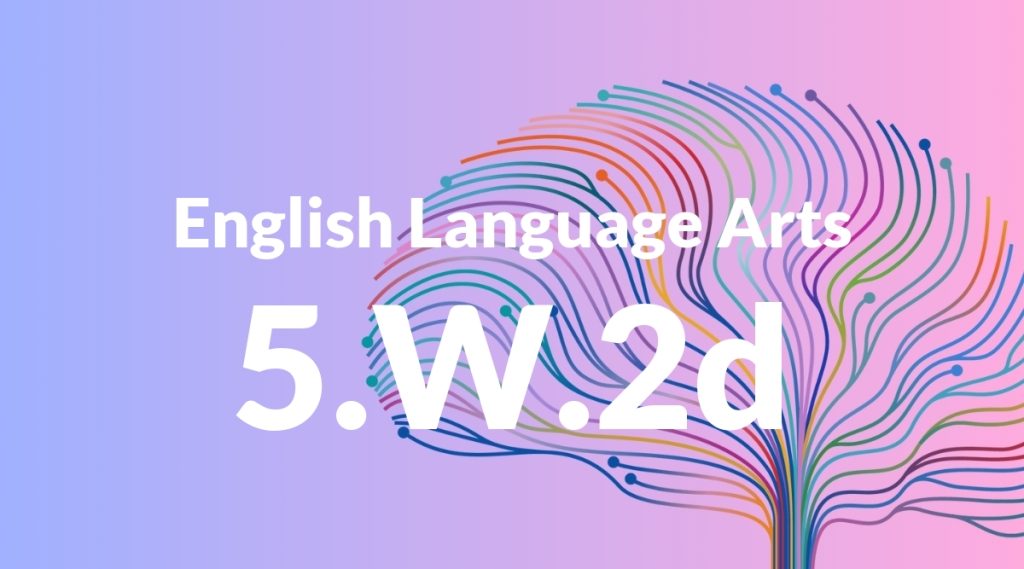Standard: 5.W.2 – Write informative/explanatory texts to examine a topic and convey ideas and information clearly.
Grade level: Grade 5
Subject: English Language Arts
Domain: Writing
Teacher Overview
This standard focuses on developing students’ ability to write clear and informative texts. It is crucial as it lays the foundation for future academic writing, helping students to organize their thoughts and convey information effectively. Students should have a good grasp of basic writing skills, including sentence and paragraph construction, and should have some experience with narrative or descriptive writing.
Mastering this standard prepares students for more advanced writing tasks, such as argumentative essays and research projects, by developing their ability to organize and present information clearly.
Common Misconception 1
A common misconception is that informative writing should include personal opinions. This is incorrect because informative writing aims to present facts and information objectively.
Intervention 1
Use examples and guided practice to help students distinguish between facts and opinions. Provide exercises where students identify and separate factual information from opinions.
Common Misconception 2
Another misconception is that more information always improves writing. However, adding irrelevant details can confuse the reader and dilute the main message.
Intervention 2
Teach students to focus on the main topic by using graphic organizers and outlining techniques. Encourage them to select only the most relevant information to include in their writing.
Prerequisite Knowledge
Students should be familiar with basic sentence structure, paragraph formation, and have experience writing simple narratives or descriptive texts.
Subsequent Knowledge
After mastering this standard, students will be able to write more complex essays, including argumentative and research-based writing, and will develop skills in organizing and presenting information logically.
Instructional Activities
- Brainstorming and outlining sessions
- Writing workshops with peer reviews
- Creating graphic organizers to structure information
- Research projects on various topics
- Interactive writing prompts and exercises




